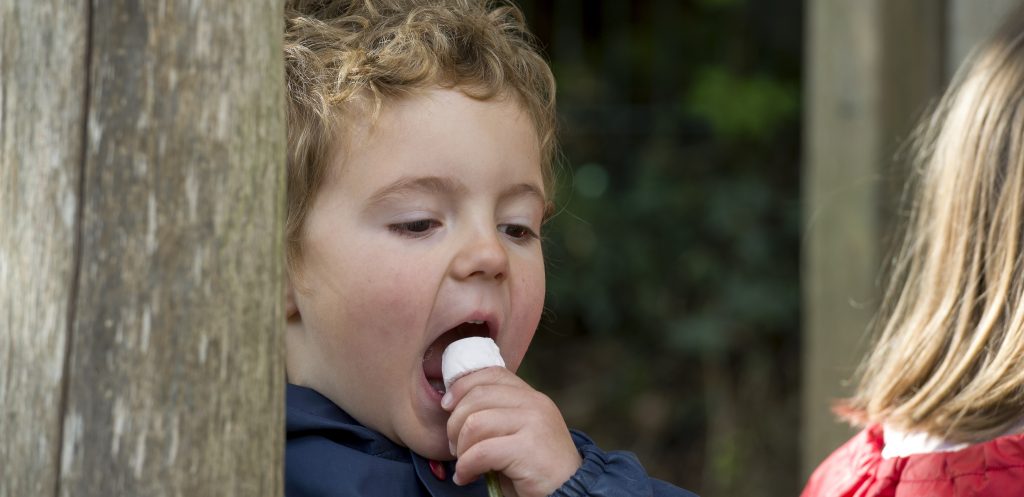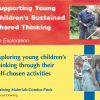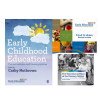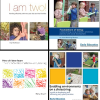How nurseries show community leadership and create happier local neighbourhoods
by Mona Sakr Nurseries are at the heart of enabling children to positively contribute to the communities they live in. Through their work with children
All children are individuals, because they are born with their own character. This is why even children within the same family do not react in the same way to similar situations.
Even so, a great deal of young children’s behaviour is learned through experience. They learn from how important people in their life react when they behave well or not so well. They also copy ways of behaving – both “good” and “bad” – from adults. Children do not only imitate other children.
Young children need grown-up help to build habits of “good” behaviour and your patience when they make mistakes. There will be times when they know what they should do, but are struggling to do it. They welcome caring guidance at these times just as they welcome help when they cannot manage to build their brick tower or pour their own juice. It may seem obvious with these activities that children need time and practice to learn what to do. The same is true of learning how to behave.
Children need boundaries set by grown-ups who do not change the ground rules to suit their own moods. The most helpful adults are “firm but fair” people, who stick to “No” when that is important. They also check themselves to make sure they are not saying “No” as a habit, without thinking.
Ground rules cannot be mainly about what children should not do. If they are, children can end up trying to work out what is left after all the “stop it”s. For every “don’t do that” be ready with an alternative “do”. With careful guidance, young children can learn that it is not all right to hit people, even if they are very cross with Mummy or if another child has been completely “horrid”. They cannot learn this if they are shouted at or smacked, because adults are actually using the behaviour they are trying to stop in the children. So what else are children to do with their cross or hurt feelings? They need help to use words, like saying, “I’m cross with you, because …” Young children learn, bit by bit, that if they would like the book or car that another child is playing with, it is not all right simply to grab and run. Instead, they need to ask: “Please can I have …?” or offer a trade. Ground rules like these help adults resist the temptation to smack. There are always other options that mean you avoid hurting young children – physically or emotionally. In times of stress, you may need to count to ten, take a deep breath or literally take several steps back.
Sometimes a young child copes by using fierce words or actions. But this behaviour does not make him or her into a “spiteful” or “bad-tempered” child. Adults do not like it if children claim things like, “You’re always shouting at me!”, or “You never listen!” We want to be understood as having done our best, but that after four times of asking nicely our patience has gone. Adults need to give the same courtesy to children and avoid the bad habit of labelling them as “never like this” or “always doing that”.
Try to take each episode of anger as a separate event. That way, the child is no longer seen as bad tempered by nature. By treating each angry moment as a one-off, grown-ups will find it easier to try and work out what caused the fury and help the child avoid it in future.
Make the effort to catch children out “being good”. Children learn best when they receive generous encouragement for what they have actually done. You can use words, smiles and gestures like clapping.
Children need helpful adults when they have run out of options and the yelling and pinching has started.
Babies and young toddlers cannot foresee the results of their actions. They do not know enough about how the world works. Very young children often need to be physically guided away because they cannot stop themselves – it is just too tempting to pull the cat’s tail or climb up for another biscuit. Young children often need to be reminded of a ground rule or to hear a request again.
Not surprisingly, children often copy what they hear and see from adults. Do your best to avoid any tactics that would bring a telling-off if the children behaved in that way. Adults who use yelling, sarcasm, swearing, threats or smacking, are setting such a bad example to the children.
No one is perfect. The best of adults get tired, run out of patience and make mistakes in the heat of the moment. A thoughtful adult will consider, “Would I like a child to say or do what I have just done?” If necessary, we should say “Sorry”, just as we would expect from the children.
Whatever your own childhood experiences or the views of people you know, you can decide that warm encouragement does not spoil children or make them big-headed. You can be firm that children learn best by telling them what they have done right and using fair consequences. It is your choice.
Jennie Lindon is a chartered psychologist, with over 30 years’ experience of working with early years services for children and their families. She has written many books and magazine articles for parents and early years practitioners.

by Mona Sakr Nurseries are at the heart of enabling children to positively contribute to the communities they live in. Through their work with children
The Families’ Access to Nature Project was undertaken by the Froebel Trust and Early Education between October 2021 and January 2022. Children, their parents, and
ICT – what’s it all about? ICT is information and communications technology. The term simply means all the technology around us, things like mobile phones,
Toddlers are very busy people. They are keen to learn about the world around them and ready to be fascinated by things that seem ordinary
Children’s curiosity about the world around them is apparent from the day they are born. Babies quickly use all their senses to explore themselves and
Reading is fun. It’s also a key skill that helps us to learn and to live our lives – so starting to read is an
What? Why? When? Where? What for? – and Why? yet again. Sometimes children’s questions just keep on coming. It can be wearing, especially if you
It’s true, maths really is everywhere, and learning about it doesn’t happen just at school or nursery. Young children have lots of important mathematical experiences
What is mark making? Mark making is the term used to describe the marks that children in their early years make on paper and is
The role of music in the early years Everyone knows how much young children love to sing and dance, but all too often music is
Early childhood seems like a time of constant change to adults. Just as you’ve got used to a predictable daytime nap, your child decides that
Why go outside? Big movers Have you ever been in an open space with young children? The first thing they want to do is to
Young children are artists. They use all sorts of materials to show what they have noticed about the world. They might draw the rain falling
Taking care of a baby is tiring work, with a lot of feeding, nappies and broken nights. When you are exhausted, it can be harder
Healthy settling for high wellbeing How can we best help children feel at ease so that they are secure and settled in their new provision?
Here are twelve links with free ideas to support play and learning at home, suitable for early years, nursery, reception and school aged children in
This page was written following our Community of practice about transitions. We had a lot of sharing and questioning about this and so we thought we
It is important to include families in helping to shape your decisions in relation to developments you want to make. Families know their circumstances best
Here is a list of books and resources compiled by Anni McTavish to support feelings and behaviour. Reference books Why Love Matters – how affection
When children cry they are telling us something important We need to understand and listen to their tears. Supporting children when they express strong emotions
ACEs: Adverse Childhood experiences On this page we will collate information we find about Adverse Childhood Experiences (ACEs), a relatively new scientific concept impacting early
Since the introduction of the EYFS framework in 2008 there has been a huge emphasis upon encouraging parents to become engaged in their children’s learning.
The Duchess of Cambridge launched The Royal Foundation Centre for Early Childhood on 18th June 2021 with a substantial report Big change starts small which identifies six
Animals are special and important to many young children. In fact, even if they do not share their home with a pet, they will meet
As schools and settings open up fully once more to all children after yet another long lockdown, now is a really important time for practitioners
Entering the unknown It was extremely hard and emotional to say goodbye to the children and parents in my Reception class at the end of
by Cathy Gunning Showing empathy creates calm Showing and demonstrating empathy to children who have experienced trauma and have attachment difficulties, can help them to
There is no doubt about it, settling takes time for many children. For others it would appear it takes no time at all. If we






Early Education
2 Victoria Square
St Albans
AL1 3TF
T: 01727 884925
E: office@early-education.org.uk